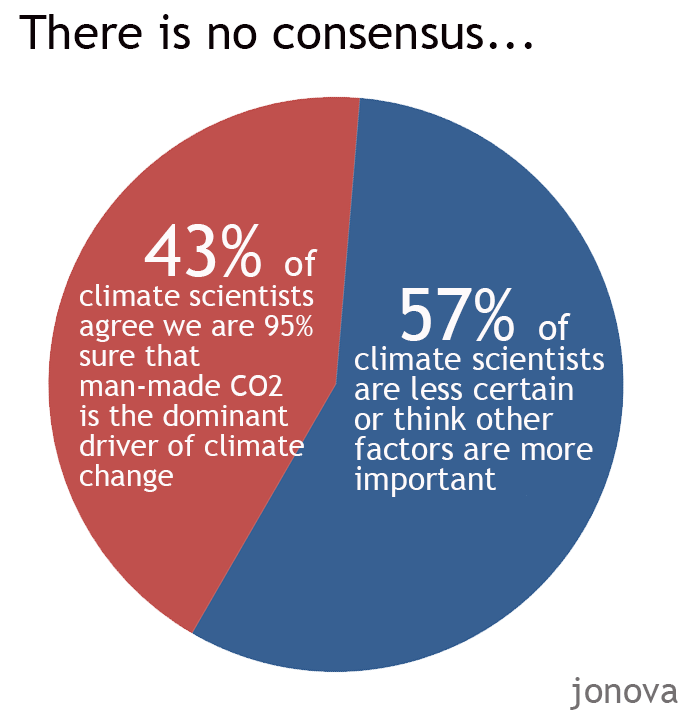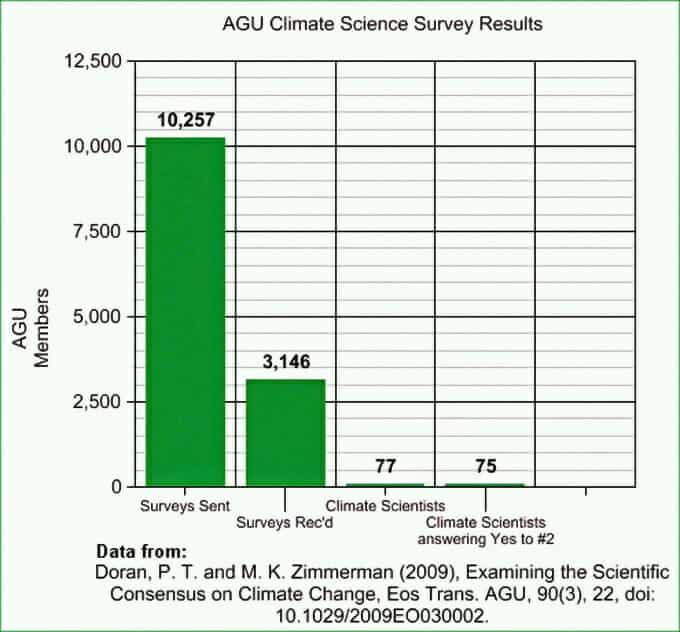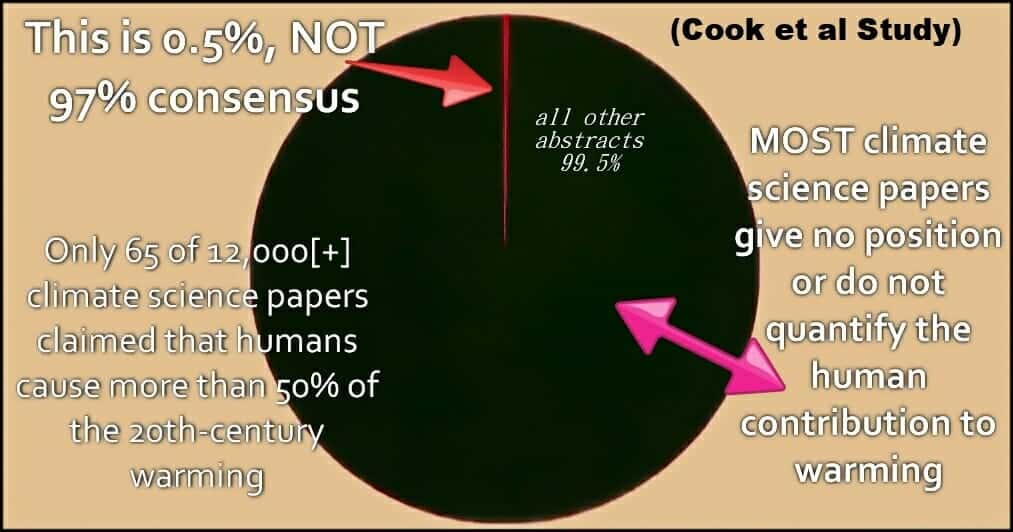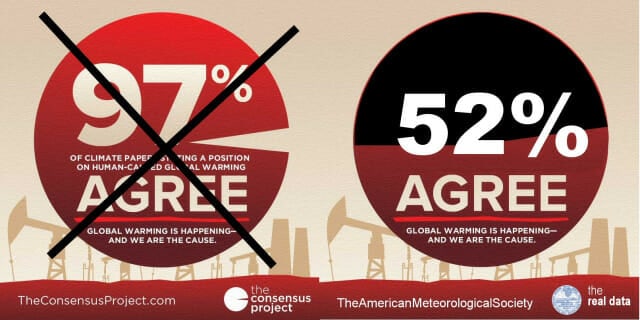“The idea that ‘Climate science is settled’ runs through today’s popular and policy discussions. Unfortunately, that claim is misguided. It has not only distorted our public and policy debates on issues related to energy, greenhouse-gas emissions and the environment. But it also has inhibited the scientific and policy discussions that we need to have about our climate future.” ~ Steven E. Koonin, Undersecretary of Energy for Science under Obama.
My resource on throwing deniers in jail is the best online:
MYTH: The world is getting hotter at a significant rate.
TRUTH: The world has gotten 1.7 degrees hotter since 1880.
MYTH: Rise in CO2 is dangerous and can directly be traced to man-made emissions.
TRUTH: CO2 isn’t a pollutant. Most of the rise in CO2 is coming from natural sources.
MYTH: The Ice Sheets are MELTING AWAY!
TRUTH: Antarctic Ice Sheet is growing by billions of tons. Also FAIL: Scientist That Predicted Ice Caps Would Melt in 2013… Now Claims 2016?
MYTH: Climate change models are reliable.
TRUTH: NOAA has been caught skewing data.1
MYTH: Climate change is the consensus of scientists.
FACT: Not all scientists are in agreement over climate change. Also, manmade climate change is still a theory.
MYTH: Hybrid cars are better for the environment.
TRUTH: Not exactly. Production emissions are much higher, the minerals mined for the battered are typically done with little oversight on “non-green ways” and you’re still hurting the environment FAAAAR more by buying a new hybrid than buying used gas.
MYTH: The polar bears are dying off!
TRUTH: There are more polar bears than ever before. Do not ask a polar bear for a coke. It might kill you.
MOAR Sources
- Tesla 4.9 billion in gov incentives.
- Green energy companies like Solyndra taking tax dollars.
- Also 2.2 billion in tax liabilities for similar programs under Obama
- Ethanol subsidies
- German government admits transition to “renewable energy” has been a failure
- EPA woefully inept here. Colorado river contaminated.
- Government government admits “renewable energy” fail.
- Inconvenient Truth predictions all wrong
- 7 major climate predictions wrong
CONSENSUS
A great site bringing together the professional as well as the media’s critique of the 97% consensus can be found HERE: 97 Articles Refuting The “97% Consensus” This really the bottom line:
…The “97 percent” figure in the Zimmerman/Doran survey represents the views of only 79 respondents who listed climate science as an area of expertise and said they published more than half of their recent peer-reviewed papers on climate change. Seventy-nine scientists—of the 3,146 who responded to the survey—does not a consensus make.
In 2010, William R. Love Anderegg, then a student at Stanford University, used Google Scholar to identify the views of the most prolific writers on climate change. His findingswere published in Proceedings of the National Academies of Sciences. Mr. Love Anderegg found that 97% to 98% of the 200 most prolific writers on climate change believe “anthropogenic greenhouse gases have been responsible for ‘most’ of the ‘unequivocal’ warming.” There was no mention of how dangerous this climate change might be; and, of course, 200 researchers out of the thousands who have contributed to the climate science debate is not evidence of consensus.
In 2013, John Cook, an Australia-based blogger, and some of his friends reviewed abstracts of peer-reviewed papers published from 1991 to 2011. Mr. Cook reported that 97% of those who stated a position explicitly or implicitly suggest that human activity is responsible for some warming. His findings were published in Environmental Research Letters.
Mr. Cook’s work was quickly debunked. In Science and Education in August 2013, for example, David R. Legates (a professor of geography at the University of Delaware and former director of its Center for Climatic Research) and three coauthors reviewed the same papers as did Mr. Cook and found “only 41 papers—0.3 percent of all 11,944 abstracts or 1.0 percent of the 4,014 expressing an opinion, and not 97.1 percent—had been found to endorse” the claim that human activity is causing most of the current warming. Elsewhere, climate scientists including Craig Idso, Nicola Scafetta, Nir J. Shavivand Nils- Axel Morner, whose research questions the alleged consensus, protested that Mr. Cook ignored or misrepresented their work.
Rigorous international surveys conducted by German scientists Dennis Bray and Hans von Storch—most recently published in Environmental Science & Policy in 2010—have found that most climate scientists disagree with the consensus on key issues such as the reliability of climate data and computer models. They do not believe that climate processes such as cloud formation and precipitation are sufficiently understood to predict future climate change.
Surveys of meteorologists repeatedly find a majority oppose the alleged consensus. Only 39.5% of 1,854 American Meteorological Society members who responded to a survey in 2012 said man-made global warming is dangerous.
Finally, the U.N.’s Intergovernmental Panel on Climate Change—which claims to speak for more than 2,500 scientists—is probably the most frequently cited source for the consensus. Its latest report claims that “human interference with the climate system is occurring, and climate change poses risks for human and natural systems.” Yet relatively few have either written on or reviewed research having to do with the key question: How much of the temperature increase and other climate changes observed in the 20th century was caused by man-made greenhouse-gas emissions? The IPCC lists only 41 authors and editors of the relevant chapter of the Fifth Assessment Report addressing “anthropogenic and natural radiative forcing.”…
(WSJ)
Cook misquoted papers (the one’s he included… not the 8,000 he excluded) as representing consensus… the original post by Popular Technology is HERE, but FORBES did a good job on explaining the discrepancies as stated by the “consensus scientists/specialists.”
…When Popular Technology asked physicist Nicola Scafetta whether Cook and his colleagues accurately classified one of his peer-reviewed papers as supporting the ‘consensus’ position, Scafetta similarly criticized the Skeptical Science classification.
“Cook et al. (2013) is based on a straw man argument because it does not correctly define the IPCC AGW theory, which is NOT that human emissions have contributed 50%+ of the global warming since 1900 but that almost 90-100% of the observed global warming was induced by human emission,” Scafetta responded. “What my papers say is that the IPCC [United Nations Intergovernmental Panel on Climate Change] view is erroneous because about 40-70% of the global warming observed from 1900 to 2000 was induced by the sun.”
“What it is observed right now is utter dishonesty by the IPCC advocates. … They are gradually engaging into a metamorphosis process to save face. … And in this way they will get the credit that they do not merit, and continue in defaming critics like me that actually demonstrated such a fact since 2005/2006,” Scafetta added.
Astrophysicist Nir Shaviv similarly objected to Cook and colleagues claiming he explicitly supported the ‘consensus’ position about human-induced global warming. Asked if Cook and colleagues accurately represented his paper, Shaviv responded, “Nope… it is not an accurate representation. The paper shows that if cosmic rays are included in empirical climate sensitivity analyses, then one finds that different time scales consistently give a low climate sensitivity. i.e., it supports the idea that cosmic rays affect the climate and that climate sensitivity is low. This means that part of the 20th century [warming] should be attributed to the increased solar activity and that 21st century warming under a business as usual scenario should be low (about 1°C).”
“I couldn’t write these things more explicitly in the paper because of the refereeing, however, you don’t have to be a genius to reach these conclusions from the paper,” Shaviv added.
To manufacture their misleading asserted consensus, Cook and his colleagues also misclassified various papers as taking “no position” on human-caused global warming. When Cook and his colleagues determined a paper took no position on the issue, they simply pretended, for the purpose of their 97-percent claim, that the paper did not exist.
Morner, a sea level scientist, told Popular Technology that Cook classifying one of his papers as “no position” was “Certainly not correct and certainly misleading. The paper is strongly against AGW [anthropogenic global warming], and documents its absence in the sea level observational facts. Also, it invalidates the mode of sea level handling by the IPCC.”
Soon, an astrophysicist, similarly objected to Cook classifying his paper as “no position.”
“I am sure that this rating of no position on AGW by CO2 is nowhere accurate nor correct,” said Soon.
“I hope my scientific views and conclusions are clear to anyone that will spend time reading our papers. Cook et al. (2013) is not the study to read if you want to find out about what we say and conclude in our own scientific works,” Soon emphasized…
Here are some visuals… and note that if 75 climatologists are a consensus, or 0.5% is a consensus, then how bout this very short list of specialists rejecting the issue in some form… what kind of consensus is that?
I bet many make the point that these specialists do not count. Let me get this straight… they counted when used to promote consensus but do not now that they say their works were misquoted/misused? Forbes and the Wall Street Journal or leading climatologists/physicists (like top-notch persons in their field like Richard Lindzen or Freeman Dyson as examples — or these 1,000 scientists, or these 3,805 scientists trained in specialties directly related to the physical environment of the Earth and the past and current phenomena that affect that environment and 5,812 scientists trained in the fundamental physical and molecular properties of gases, liquids, and solid, which are essential to understanding the physical properties of the atmosphere and Earth.) aren’t enough… how bout this PEER REVIEWED PAPER delving into the consensus in an in-depth manner. Here is the abstract… followed by some visuals:
Agnotology is the study of how ignorance arises via circulation of misinformation calculated to mislead. Legates et al. (Sci Educ 22:2007–2017, 2013) had questioned the applicability of agnotology to politically-charged debates. In their reply, Bedford and Cook (Sci Educ 22:2019–2030, 2013), seeking to apply agnotology to climate science, asserted that fossil-fuel interests had promoted doubt about a climate consensus. Their definition of climate ‘misinformation’ was contingent upon the post-modernist assumptions that scientific truth is discernible by measuring a consensus among experts, and that a near unanimous consensus exists. However, inspection of a claim by Cook et al. (Environ Res Lett 8:024024, 2013) of 97.1 % consensus, heavily relied upon by Bedford and Cook, shows just 0.3 % endorsement of the standard definition of consensus: that most warming since 1950 is anthropogenic. Agnotology, then, is a two-edged sword since either side in a debate may claim that general ignorance arises from misinformation allegedly circulated by the other. Significant questions about anthropogenic influences on climate remain. Therefore, Legates et al. appropriately asserted that partisan presentations of controversies stifle debate and have no place in education.
Continuing…
He mentioned most of the experts KNOW how CO2 affects climate. He says he does not and doesn’t think they do either. This has nothing to do with the supposed “consensus” of experts — 97% — who “say” it is driven by mankind. This is known as anthropogenic global warming, of AGW. The myth of the 97% started with ONLY 75-out-of-77 climatologists saying they believe man is the primary cause.
Yes, you heard me correctly, seventy-five.
Another study has undergrads and non-specialists (bloggers) search through many articles in peer reviewed journals, and noting that a large majority supported the AGW position. The problem was that they were not specialized in the field of science… AND… they only read the abstracts, not the peer reviewed paper itself. Many of the scientists behind the papers “said” to support AGW rejected that idea. So the specialists THEMSELVES said their papers cannot be read to support the AGW position.
Another study (pictured in the graph above) tries to save an earlier one with tainted information based on abstracts — a very UNSCIENTIFIC way to get to consensus (that is, relying on abstracts). Not only was this study based on abstracts, again, non specialists categorized them. Yet another study was merely based on search parameters/results. Here is more info (mainly links) for the not-faint-of-heart.
In reality, nearly half of specialists in the fields related reject man causing climates change.
And a good portion of those that do reject the claim that it is detrimental to our planet.
Only 13% saw relatively little danger (ratings of 1 to 3 on a 10-point scale); the rest were about evenly split between the 44% who see moderate to high danger (ratings of 4 to 7) and 41% who see very high or grave danger (ratings of 8 to 10). (Forbes)
Here is a list of scientists with varying views on the cause of “Climate Change,” and here is a list of 31,000 who stand against man as the primary cause.
AGAIN, to be clear, and to quote the post by STEVEN CROWDER:
…Also, this is kind of inconvenient, but needs to be said. The “97% of Climate Scientists Agree” meme all the climate-change robots harp on and on about is actually a load of pure organic manure, better left to grow your weed than fuel your global warming climate change passions.
In 2013, John Cook, an Australia-based blogger, and some of his friends reviewed abstracts of peer-reviewed papers published from 1991 to 2011. Mr. Cook reported that 97% of those who stated a position explicitly or implicitly suggest that human activity is responsible for some warming. His findings were published in Environmental Research Letters.
Mr. Cook’s work was quickly debunked. In Science and Education in August 2013, for example, David R. Legates (a professor of geography at the University of Delaware and former director of its Center for Climatic Research) and three coauthors reviewed the same papers as did Mr. Cook and found “only 41 papers—0.3 percent of all 11,944 abstracts or 1.0 percent of the 4,014 expressing an opinion, and not 97.1 percent—had been found to endorse” the claim that human activity is causing most of the current warming. Elsewhere, climate scientists including Craig Idso, Nicola Scafetta, Nir J. Shaviv and Nils- Axel Morner, whose research questions the alleged consensus, protested that Mr. Cook ignored or misrepresented their work.
In other words:
“If you tell a lie big enough and keep repeating it, people will eventually come to believe it. The lie can be maintained only for such time as the State can shield the people from the political, economic and/or military consequences of the lie. It thus becomes vitally important for the State to use all of its powers to repress dissent, for the truth is the mortal enemy of the lie, and thus by extension, the truth is the greatest enemy of the State.” ~ Joseph Goebbels (Adolf Hitler’s Propagandist)
Put that in your hookah and smoke it. Remember that little tidbit when you insist unborn babies are not humans, especially when you refuse to look at any evidence. Tell me again about how much you respect science.
Also good to remember anytime somebody is pushing anything on you? Follow the money. ‘Cause guess what, kids? There’s a lot of money in saying the Earth is warming and it’s totes our fault…
From The National Review: In truth, the overwhelming majority of climate-research funding comes from the federal government and left-wing foundations. And while the energy industry funds both sides of the climate debate, the government/foundation monies go only toward research that advances the warming regulatory agenda. With a clear public-policy outcome in mind, the government/foundation gravy train is a much greater threat to scientific integrity.
And here are some more points from Obama’s man:
For the latest IPCC report (September 2013), its Working Group I, which focuses on physical science, uses an ensemble of some 55 different models. Although most of these models are tuned to reproduce the gross features of the Earth’s climate, the marked differences in their details and projections reflect all of the limitations that I have described. For example:
- The models differ in their descriptions of the past century’s global average surface temperature by more than three times the entire warming recorded during that time. Such mismatches are also present in many other basic climate factors, including rainfall, which is fundamental to the atmosphere’s energy balance. As a result, the models give widely varying descriptions of the climate’s inner workings. Since they disagree so markedly, no more than one of them can be right.
- Although the Earth’s average surface temperature rose sharply by 0.9 degree Fahrenheit during the last quarter of the 20th century, it has increased much more slowly for the past 16 years, even as the human contribution to atmospheric carbon dioxide has risen by some 25%. This surprising fact demonstrates directly that natural influences and variability are powerful enough to counteract the present warming influence exerted by human activity.
Yet the models famously fail to capture this slowing in the temperature rise. Several dozen different explanations for this failure have been offered, with ocean variability most likely playing a major role. But the whole episode continues to highlight the limits of our modeling.
- The models roughly describe the shrinking extent of Arctic sea ice observed over the past two decades, but they fail to describe the comparable growth of Antarctic sea ice, which is now at a record high.
- The models predict that the lower atmosphere in the tropics will absorb much of the heat of the warming atmosphere. But that “hot spot” has not been confidently observed, casting doubt on our understanding of the crucial feedback of water vapor on temperature.
- Even though the human influence on climate was much smaller in the past, the models do not account for the fact that the rate of global sea-level rise 70 years ago was as large as what we observe today—about one foot per century.
- A crucial measure of our knowledge of feedbacks is climate sensitivity—that is, the warming induced by a hypothetical doubling of carbon-dioxide concentration. Today’s best estimate of the sensitivity (between 2.7 degrees Fahrenheit and 8.1 degrees Fahrenheit) is no different, and no more certain, than it was 30 years ago. And this is despite an heroic research effort costing billions of dollars.
BREITBART adds to the idea of the “Cooked” Cook paper with a real survey:
Nearly six in ten climate scientists don’t adhere to the so-called “consensus” on man-made climate change, a new study by the Dutch government has found. The results contradict the oft-cited claim that there is a 97 percent consensus amongst climate scientists that humans are responsible for global warming.
The study, by the PBL Netherlands Environment Assessment Agency, a government body, invited 6550 scientists working in climate related fields, including climate physics, climate impact, and mitigation, to take part in a survey on their views of climate science.
Of the 1868 who responded, just 43 percent agreed with the IPCC that “It is extremely likely {95%+ certainty} that more than half of [global warming] from 1951 to 2010 was caused by [human activity]”. Even with the “don’t knows” removed that figure increases only to 47 percent, still leaving a majority of climate scientists who do not subscribe to the IPCC’s statement.
The findings directly contradict the claim that 97 percent of climate scientists endorse the view that humans are responsible for global warming, as first made by Cook et al in a paper published in Environment Research Letters.
Cook’s paper has since been extremely widely debunked, yet so ingrained has the 97 percent consensus claim become that The Guardian has an entire section named after it, and President Obama has cited it on Twitter.
Commenting on the new study, Australian climate blogger Joanne Nova said: “Finally there is a decent survey on the topic, and it shows that less than half of what we would call “climate scientists” who research the topic and for the most part, publish in the peer reviewed literature, would agree with the IPCC’s main conclusions. Only 43% of climate scientists agree with the IPCC “97%” certainty.”…
Some Resources
- 97% Consensus? No! Global Warming Math Myths & Social Proofs (Friends of Science)
- Global Warming Alarmists Caught Doctoring ’97-Percent Consensus’ Claims (Forbes);
- (WSJ) The Myth of the Climate Change ‘97%’; What is the origin of the false belief that almost all scientists agree about global warming? (Hockey Schtick);
- 97 Articles Refuting The “97% Consensus” (Popular Technology);
- 97% Study Falsely Classifies Scientists’ Papers, according to the scientists that published them (Popular Technology ~ Update to Above Article!)
- Cooking Climate Consensus Data: “97% of Scientists Affirm AGW” Debunked (New American)
- Only 65 Scientists of 12,000 Make up Alleged 97% on Climate Change and Global Warming Consensus According to Breakdown of Cook et al study, say Friends of Science (Climate Change Dispatch);
- Undersecretary of Energy for Science For Obama Rejects “Scientism” (RPT);
- 100% Consensus ~ As If More Were Needed (RPT).
- The myth of ‘settled science’ – When the left shuts down debate, it’s time for skepticism (Washington Times)
- Peer-Reviewed Survey Finds Majority Of Scientists Skeptical Of Global Warming Crisis (Forbes)
- Debunking the 97% ‘consensus’ on global warming (American Spectator)
- Richard Tol’s Excellent Summary of the Flaws in Cook et al. (2013) – The Infamous 97% Consensus Paper (WUWT – See Dr. Tol’s blog)
- The 97% Cook Consensus – when will Environ Res Letters retract it? (JoNova)
- UN IPCC Lead Author Dr. Richard Tol Debunks ‘97% Consensus’ Claim (Breitbart)
- The 97 Percent Climate Change Consensus That Wasn’t (Heartland)
No matter what you think of the following long and short lists… the bottom line is this, WAY more than 75-Climatologists think that man is either not the main contributor to global warming at all, or that global warming is not a catastrophe waiting to happen:


